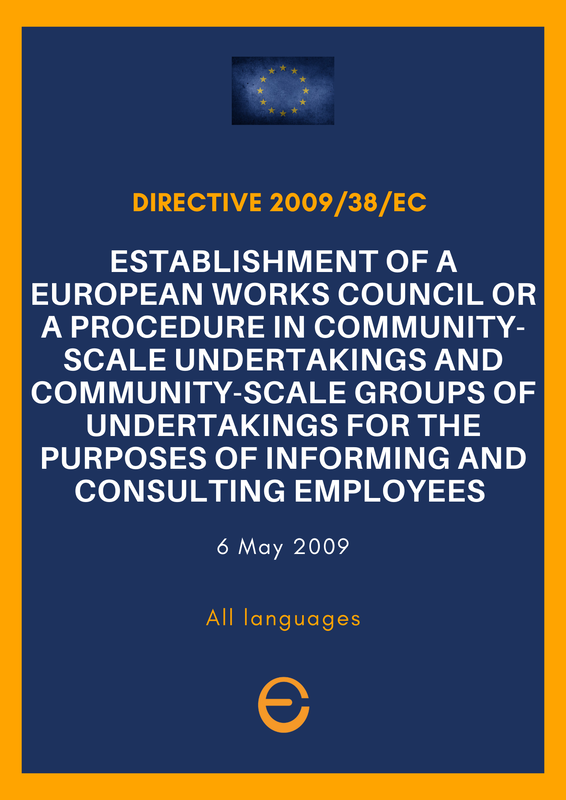|
Brussels, |
|
EU to Review the European Works Councils
The public consultation is in two phases and the social partners can decide to enter into negotiations with each other after the first or second phase of the consultation.
After the vote of the European Parliament last February, with which it asked to review the European rules for consulting a company's employees when it has to make strategic choices, the European Commission has decided to review the Directive on European Works Councils (EWC) by launching a public consultation.
Brussels, 14 April 2023 - 3 MINUTES READ
|
The existing Directive provides for a procedure for setting up information and consultation bodies between management and employee representatives in companies with more than 1,000 employees and operating in at least two Member States.
European works councils promote a shared understanding of the transnational challenges facing large multinational companies and the involvement of employees in the decision-making process, with the aim of discussing possible solutions, facilitating their implementation and increasing the impact of the strategic choices made by the employer. The European Parliament's request stems from the assessment carried out in 2018 on the effectiveness of the existing Directive, which led to the detection of shortcomings, such as the EWC consultation process and the tools with which representatives can assert their rights. The European Parliament also called on the Commission to review the directive to strengthen EWCs and their operational capacities and increase their number, taking into account the different industrial relations systems in the Member States. |
The first phase of the public consultation will gather the views of European social partners on the need and general direction for possible EU action to improve the European Works Councils Directive. The consultation will be open for six weeks. Consultation document: first-phase consultation of social partners
Commission's 2018 evaluation of the Directive
European Pillar of Social Rights
Principle 8 of the European Pillar of Social Rights underlines the importance of social dialogue and employee involvement. European works councils are a key tool for involving workers in the transnational decisions of multinational companies that affect them. They are established at the request of employees and can issue non-binding opinions to management on relevant transnational issues.
The European Works Councils Directive requires Member States to put in place adequate administrative and judicial procedures for the establishment and functioning of European Works Councils. Around 20 new EWCs are created each year and around 1,000 companies have active EWCs, representing around half of all eligible companies.
The public consultation is in two phases and the social partners can decide to enter into negotiations with each other after the first or second phase of the consultation.
Commission's 2018 evaluation of the Directive
European Pillar of Social Rights
Principle 8 of the European Pillar of Social Rights underlines the importance of social dialogue and employee involvement. European works councils are a key tool for involving workers in the transnational decisions of multinational companies that affect them. They are established at the request of employees and can issue non-binding opinions to management on relevant transnational issues.
The European Works Councils Directive requires Member States to put in place adequate administrative and judicial procedures for the establishment and functioning of European Works Councils. Around 20 new EWCs are created each year and around 1,000 companies have active EWCs, representing around half of all eligible companies.
The public consultation is in two phases and the social partners can decide to enter into negotiations with each other after the first or second phase of the consultation.
> Observatory of the European Pillar of Social Rights
© Copyright eEuropa Belgium 2020-2023
Sources: © European Union, 1995-2023
Sources: © European Union, 1995-2023



